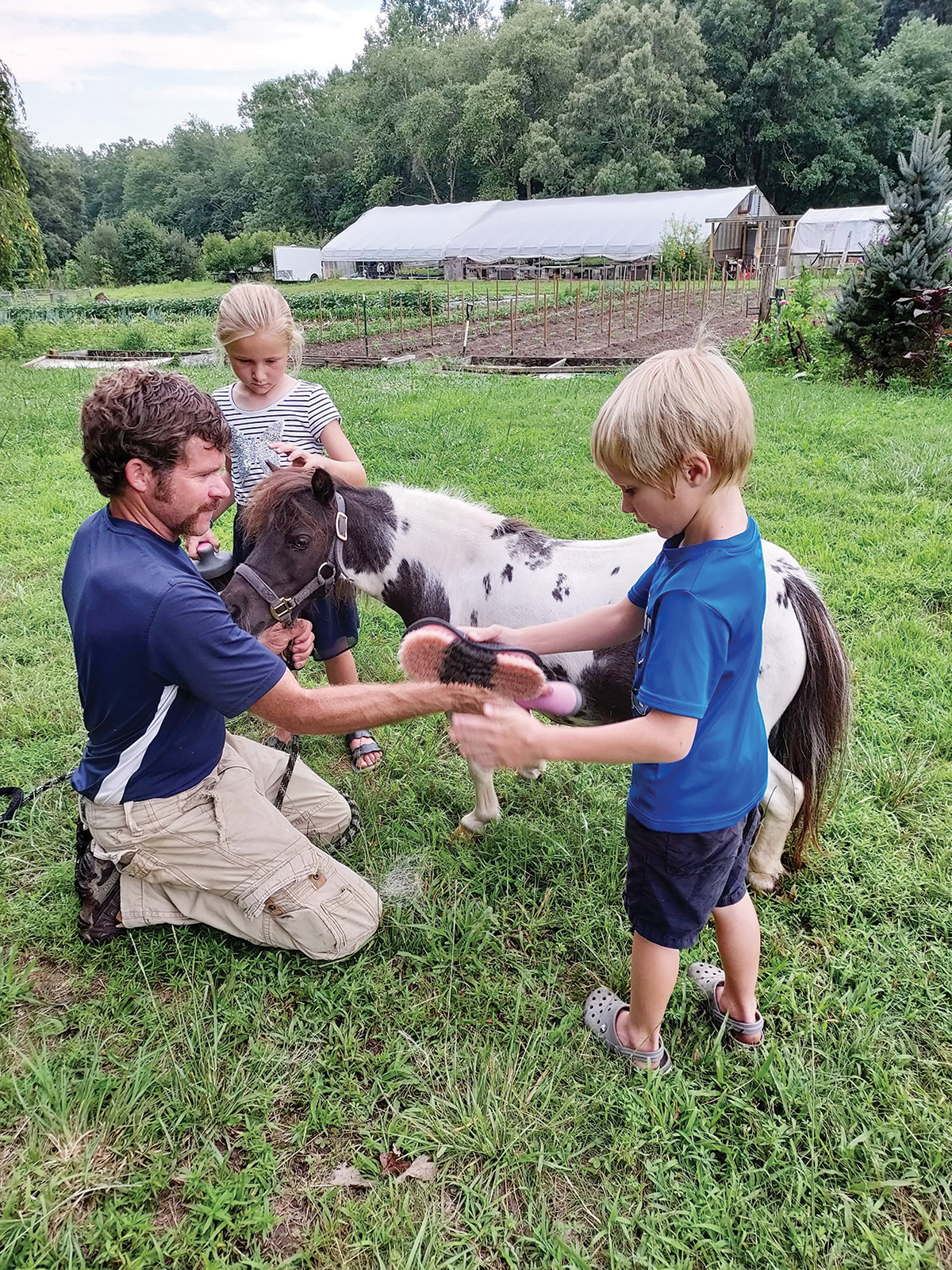Farm City Day raises agricultural awareness in Henderson County

Bee-utiful Farm and Garden owner Gary Steiner and his kids are happy to be part of Farm City Day. They often bring an animal or two for a petting zoo.
According to an online survey commissioned by the Innovation Center for U.S. Dairy, 16 million people think chocolate milk is produced by brown cows.
That’s a big problem, says Steve Pettis, a commercial and consumer horticulture agent with the North Carolina Cooperative Extension.
“Agricultural awareness is at an all-time low in the U.S.,” Pettis tells Bold Life. Children, in particular, often have no clue where their food comes from or how it’s produced.

Case in point: When one team of researchers interviewed school-age children in California, more than half didn’t know that pickles were once cucumbers, or that onions and lettuce are plants. About 30 percent didn’t know that cheese is made from milk.
Even in Western North Carolina, an area full of small farms and chummy farmers’ markets — Henderson and Polk counties are especially known for agriculture — many kids “don’t know that French fries are made from potatoes that grow in the ground,” says Pettis. “Most have never even seen a tomato on the vine.”
This lack of basic knowledge underscores the importance of a Henderson County staple — Farm City Day.
First organized in 1955 as a way of acquainting urbanites with the rural growers who raised their food, Farm City Day has since grown into a full-on festival complete with live performers, vendors, and food trucks. But the focus on education remains.
At this year’s event, kids can ride ponies, observe craftspeople, and even “drive” a tractor in a virtual-reality simulator. They will also be able to feed and pet barnyard animals from local farms.
In the past, Gary Steiner of Bee-utiful Farm and Garden has brought his Jersey cow, Sassy, to Farm City Day. Her doe-eyed presence sparks a lot of questions like: What do cows eat, how much milk does a cow produce, and how many stomachs does a cow have? The answers, respectively: hay, grain, and silage; about seven gallons per day; and four.
“Farm City Day is such a cool opportunity for folks to come together and realize that farmers carry the brunt of providing food,” says Gary, who farms plant starts, herbs, cut flowers, honey, and produce with his wife, Abigail, on 27 acres in the Henderson County community of Mountain Home.
Unlike most farms, which are remote and secluded, Gary and Abigail’s acreage flanks a neighborhood. The juxtaposition offers daily opportunities to teach suburban families about the ins and outs of raising plants and animals.
“For example, a neighbor may ask, ‘Why’s the cow bawling today?’ And it may be the simple fact that we’re weaning the baby,” Gary explains. “It’s fun to turn those instances into educational moments.”
According to Pettis, these face-to-face learning opportunities are especially important for children living in the urban reaches of the area.
“We have always had a strong agricultural presence in the South,” says Pettis. “But over the years, as fewer people have taken up farming and more people have moved into town, we have gotten farther and farther away from the sources of our food.”
Farm City Day, he explains, is an opportunity to reconnect kids with those agrarian roots. “This mission is and always has been to teach children where their food comes from.”
Farm City Day happens Saturday, Oct. 1, 10am-4pm, at Jackson Park (708 Glover St. in Hendersonville). Free. For more information, call 828-697-4900 or see “Farm City Day, Hendersonville” on Facebook.



